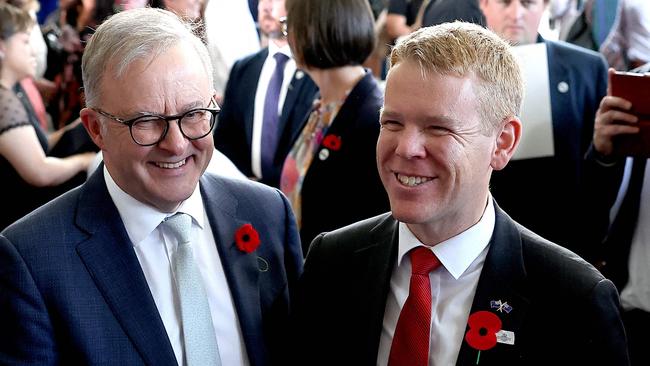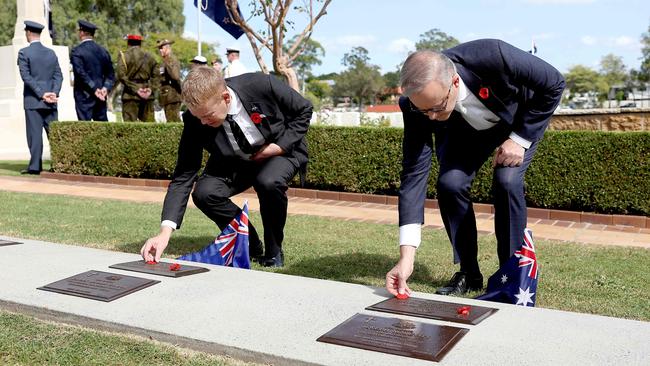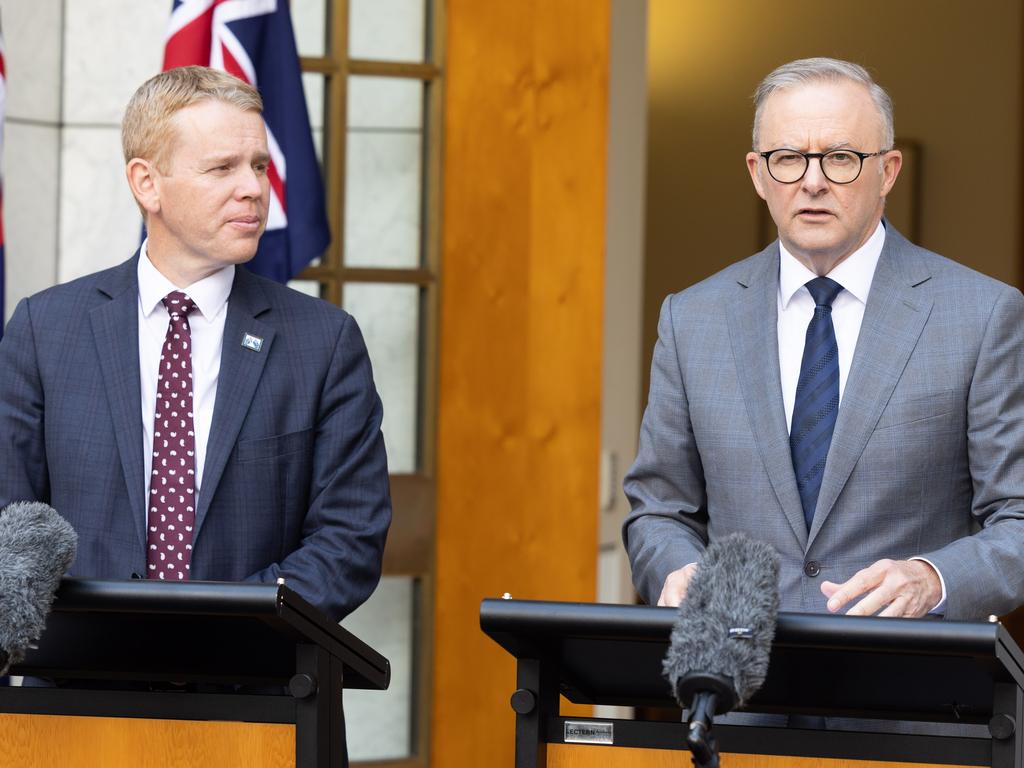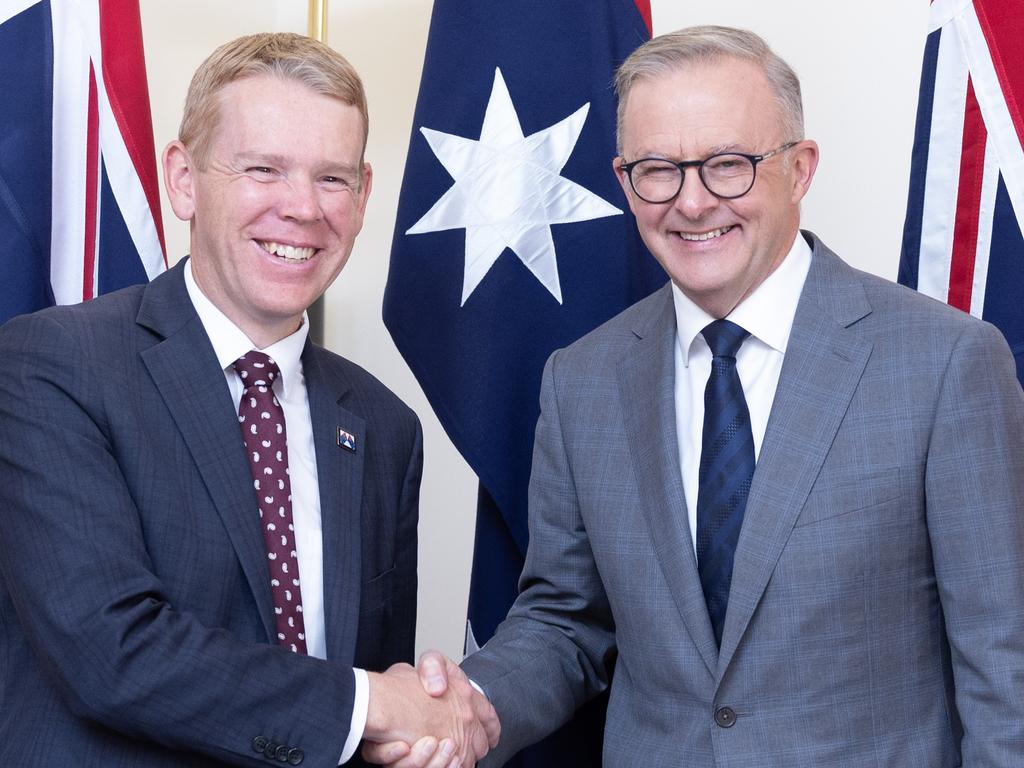Kiwis join clan as Hipkins backs AUKUS
New Zealand Prime Minister Chris Hipkins has reassured Australia that his country remains firmly behind AUKUS.

New Zealand Prime Minister Chris Hipkins has reassured Australia that his country remains firmly behind AUKUS, endorsing the move to acquire nuclear-powered submarine capabilities as necessary to protect the Indo-Pacific against emerging threats to a global rules-based order.
Following bilateral talks with Anthony Albanese in Brisbane on Sunday, Mr Hipkins threw his support behind Australia’s plan to acquire nuclear-powered submarines from the US and Britain after he received assurances the deal would not impact Australia’s commitment to the nuclear non-proliferation treaty.
Mr Hipkins travelled to Australia to meet Mr Albanese to announce new citizenship arrangements between Australia and New Zealand, paving the way for more than 350,000 Kiwis living in Australia to become eligible for citizenship from July 1.
“New Zealand, like Australia, is clear-eyed that there is a challenging strategic environment in the Indo-Pacific region,” Mr Hipkins said. “We both want a stable, secure and resilient region. And New Zealand agrees with the AUKUS partners that the collective objective needs to be the delivery of peace and stability and preservation of an international rules-based system in our region.
“We have a long and positive history of working together on these matters, and I also acknowledge our ongoing joint commitment to the non-proliferation of nuclear weapons and I welcome your assurance that nothing in the AUKUS arrangement alters Australia‘s commitment to that.”
The Prime Minister said Mr Hipkins had received briefings on AUKUS ahead of its formal announcement in San Diego in April and affirmed relations between the two countries remained very strong. Mr Albanese also praised Mr Hipkins for his commitment to the Pacific Islands Forum, and said New Zealand had played an important role in holding the key diplomatic body together after Kiribati withdrew its membership.
“We certainly have a very strong relationship and prior to the announcement in San Diego, the Prime Minister was kept informed, as you would expect. And today we had another discussion about peace, security and stability in the region,” Mr Albanese said.

“We know that when you have a body made up of more than a dozen countries, once you have a withdrawal, that can very easily lead to a second withdrawal, a third, a fourth. And it is important that the Pacific Island family stay together. New Zealand has played a very important role there.”
The two leaders on Sunday also unveiled previously unmarked graves of 10 New Zealand World War I veterans and paid tribute to past and serving soldiers in the lead up to Anzac Day.
The trip marked Mr Hipkins’ second visit across the ditch after he came to meet Mr Albanese for an introductory working lunch in February after he unexpectedly took over from Jacinda Ardern following her snap retirement.
Announcing new citizenship changes, Mr Albanese said the arrangements would normalise relations between the nations and help bolster diplomatic ties. “I see this as a commonsense approach and … consistent with the rules in place already for Australians in New Zealand,” he said.
The move marks a reversal from laws brought in under the Howard government in 2001 that forced New Zealanders on to special visas letting them work but restricting their entitlements.





To join the conversation, please log in. Don't have an account? Register
Join the conversation, you are commenting as Logout